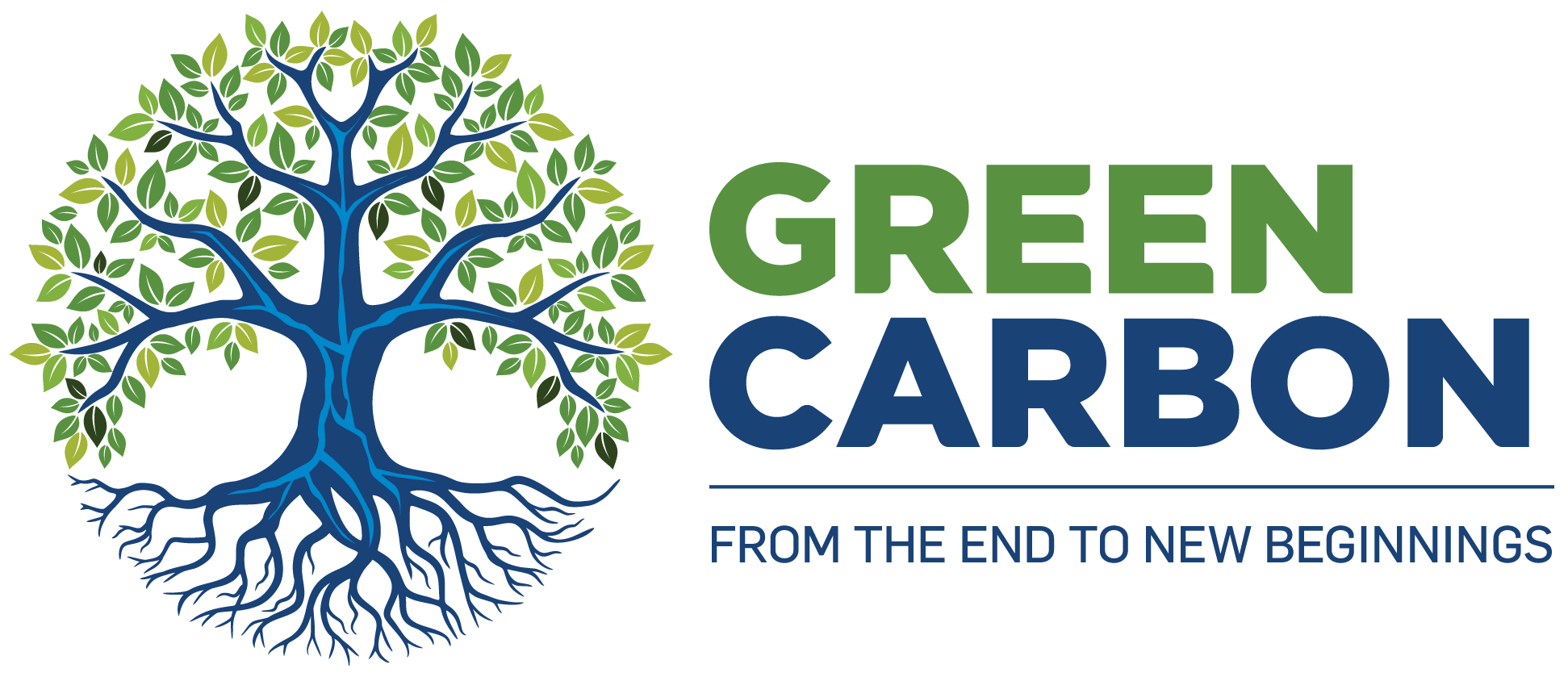Our Portfolio
EPR: Extended Producer Responsibility
On the direction of National Green Tribunal (NGT), Ministry of Environment and Forests has come up with the Plastic Waste Management (“PWM”) Rules 2016, which make it mandatory for producers, importers and brand owners (PIBO) who put plastic into the market as packaging, to dispose an equal amount of the waste scientifically. Producers now accept their responsibility when designing their products to minimize life-cycle environmental impacts, and accept legal, physical or socio-economic factors.

Our EPR Services
Registration
- Registering with the SPCB (State Pollution Control Board) or the CPCB (Central Pollution Control Board)
- Responding to the queries made by the SPCB or the CPCB.
EPR Execution
- Source plastic waste through our network of municipalities or ULBs, material recovery facilities, scrap dealers, and recyclers.
- Collect and transport plastic waste.
- Scientifically dispose plastic waste through CPCB approved processors.
Compliance and Documentation
- Document evidence of disposal as per the CPCB guidelines.
- Maintaining proofs (documents) for collection, transportation and disposal of plastic waste.
- Reporting and EPR Audit Assistance for brands, CPCB and SPCB.
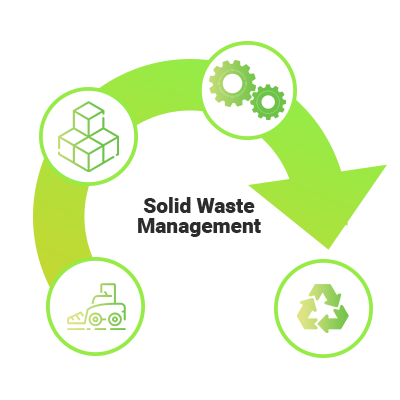
Solid Waste Management
Solid Waste Management (SWM) is the process of collecting, transporting, treating and scientific disposal of Solid Waste. It is the responsibility of ULBs to ensure proper segregation of waste at the source and that the waste goes through different channels of recycling and resource recovery. The reduced final residue is then scientifically landfilled.
There has been technological advancement for processing, treatment and disposal of solid waste. Waste-to-energy (WTE) is a crucial element of SWM because it reduces the volume of waste and converts the waste into renewable energy.
SWM Services
GCFFL currently works with ULBs to transform linear waste management into circular waste management. This is achieved by ensuring that waste management system and processes are in compliance with Municipal Solid Waste Management (MSWM) and Swachh Bharat Mission Guidelines.
Wet Waste
Technical assistance in selecting a suitable disposal method for wet waste. (Windrow composting, Vermi Composting, Pelletization).
Hazardous Waste
Technical assistance on selecting and implementing a hazardous waste disposal system.
Dry Waste
We have developed an ecosystem for segregation and disposal of dry waste through our integrated waste management and disposal facility.
Alternate Fuels
RDF (Refuse Derived Fuel)
At present municipal solid waste (MSW) in India is generally unsegregated with high moisture content, low calorific value, odor and a wide range of particle size. RDF which is an alternative fuel derived from MSW, plays a major role in reduction of this waste. The principle of RDF production is recovering quality fuel fractions from the waste, particularly through the removal of recyclable particles such as metal and glass, and converting the raw waste into a more usable form of fuel with uniform particle size and higher calorific value than raw MSW. GCFFL can manufacture various grades of RDF according to the client requirements and specifications.
SRF (Solid Recovered Fuel)
SRF is a high-quality alternative to fossil fuels and is produced from mainly commercial waste such as paper, cardboard, wood, textiles, plastic etc. SRF has a higher calorific value then RDF. GCFFL can manufacture various grades of SRF according to the client requirements and specifications.
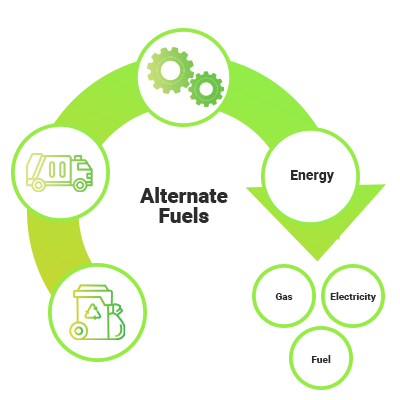
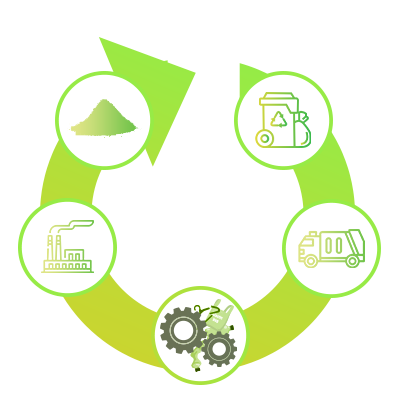
Plastic Recycling
Plastic recycling is the re-processing and re-purposing of scrap plastic into new and useful products. GCFFL segregates the plastics by type and recycles the same through CPCB authorized recyclers. We can supply various types of recyclable plastics such as HDPE, LDPE, PET, PP.
Paper Recycling
The recycling of paper is the process through which waste paper is repurposed into new paper products. The process of recycling paper saves waste paper from occupying space in homes of people, polluting the environment and producing harmful methane as it breaks down naturally. GCFFL works with local paper and cardboard recyclers in Telangana and Andhra Pradesh for the purpose of recycling.

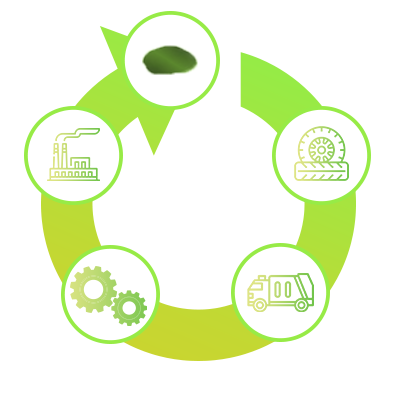
Rubber Recycling
Rubber recycling is the process of recycling waste tires that are no longer suitable for use on vehicles due to wear or irreparable damage. Tires are highly durable, ecologically problematic, and non-biodegradable. At our upcoming integrated waste management and disposal facility, scrap tyres can be recycled, re-purposed as new products such as tyre derived fuels (TDF), crumb rubber, and rubber powder.
Green Energy
“From an extremely polluting material to the cleanest fuel in the universe”, at our upcoming integrated waste management and disposal facility, we will be “upcycling” various streams of incoming waste to produce “green energy” by employing modern cutting edge technology. This “Green energy” will have a zero carbon footprint, will be climate neutral, mobile and in line with India’s Net-zero targets. For more information please contact us.

Quick Links
Our Service
Our Company
Contact Info
- 121 King St. Melbourne VIC
- 3000, Australia
- 888-123-4568
- info@example.com
Quick Links
Location
Registered Office Address:
Green Carbon Fuels & Feeds (P) Ltd. 144/2RT , Vijaya Nagar Colony , Hyderabad, Telangana – 500057,INDIA
